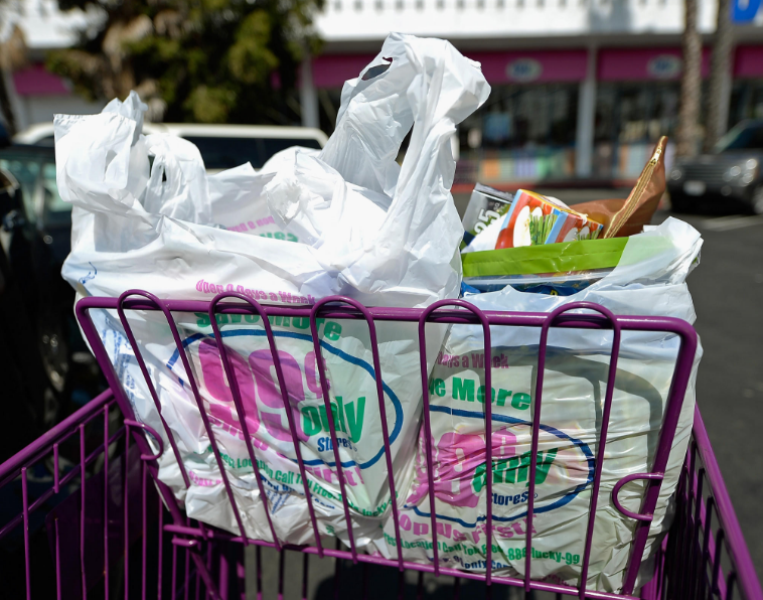
#KnowYourAfrica: Ban of plastic bags in Rwanda
Countries all over the world struggle with plastic waste, and for developing countries this is an even bigger challenge.
 With development in countries, people gain access to supermarkets and can purchase packaged foods that were previously too expensive. Most stores from electronics to grocery stores also prefer packaging goods in these plastic bags. Problem comes in when these governments in the developing countries lack the funds to create jobs in sanitation to clean up waste, recycle and deal with the influx of plastic trash from new infrastructure. The polyethylene bags, which shoppers typically only use once before throwing out, are known to amass in landfills, litter streets, obstruct sewer systems and hurt marine life.
With development in countries, people gain access to supermarkets and can purchase packaged foods that were previously too expensive. Most stores from electronics to grocery stores also prefer packaging goods in these plastic bags. Problem comes in when these governments in the developing countries lack the funds to create jobs in sanitation to clean up waste, recycle and deal with the influx of plastic trash from new infrastructure. The polyethylene bags, which shoppers typically only use once before throwing out, are known to amass in landfills, litter streets, obstruct sewer systems and hurt marine life.
In Ghana, plastic trash clogged drains causing a flood that killed 150 people and led to fuel fire. The damage from this flood alone costs hundreds of millions in damage to the government of Ghana.
There are states in the US that do not allow plastics bags with a number of cities passing special taxes aimed at discouraging the use of disposable plastic bags. Other states have outlawed them entirely.
In 2008, while the rest of the world was barely starting to consider a tax on single-use plastic bags, Rwanda, the small East African nation decided to ban the use of plastic bags completely.
Rwanda could have decided to impose a tax as other countries like the US have done; they chose to lead the way in the continent by banning the use of these bags.
As part of a revival plan following an economic and emotional destruction due to the 1994 genocide, leaders decided to emphasize environmental protection, resulting in a series of reforms that included the bag measure.
Rwanda’s law has serious teeth!
It prohibits the manufacture, use, importation and sale of the bags. Owners of businesses that violate the ban face up to a year in prison, and anyone caught carrying a bag faces stiff fines.
 At Kigali International Airport, a sign warns visitors that plastic bags will be confiscated. Agents from the Rwanda Environment Management Authority (REMA) cut the plastic wrapping off negligent travellers’ suitcases.
At Kigali International Airport, a sign warns visitors that plastic bags will be confiscated. Agents from the Rwanda Environment Management Authority (REMA) cut the plastic wrapping off negligent travellers’ suitcases.
Rwanda’s audacious ban, however harsh it may be, seems to have been effective. Numerous international environmental agencies have praised the prohibition for helping clean up the streets of the country, especially the capital city of Kigali.
Not only can eliminating plastic trash save lives, it also boosts economies. Rwanda has seen an increase in tourism which is very good economically for them.
Rwanda devised a clever strategy to turn the ban into a boost to its economy by encouraging companies that used to manufacture plastic bags to start recycling them instead by providing tax incentives. The policy also created a market for environmentally friendly bags, which were virtually non-existent in the country before the ban.
The constitution of Rwanda states that every citizen has the right to a clean and healthy environment. Dr. Rose Mukankomeje, Director General of the Rwanda Environment Management Authority insisted on why the ban was important and how they educated the public on its importance.
“Part of what we do in Rwanda to ensure our communities stay clean is we have monthly Umuganda, which is monthly community work. During this time people and leaders clean their communities and during talks of the [plastic bag] ban there are discussions [during Umuganda] regarding the advantages of doing away with plastic bags,” said Dr Mukankomeje.
“We also had TV and radio campaigns against plastic bag usage and short videos we distributed to buses and airlines to educate travellers to Rwanda about our plastic bag ban. There were initial difficulties with this because good alternatives did not exist and we had to import environmentally friendly bags,” she added.

Every last Saturday of every month, every Rwandan between 18 and 65 years old, with the ability to work (including the president) engages in mandatory community work known as Umuganda. Expatriates residing in Rwanda are also encouraged to participate in community works. Of course, a (perhaps unintended) consequence of this community service is less litter dropped on the streets — one will just have to do more work on the day of Umuganda if one litters.
Now in its eighth year, the policy has proved efficient, if not perfect. Travellers to Rwanda comment that Kigali is not only one of the cleanest cities in Africa, but also one of the cleanest capital cities in the world. The countryside and cities are remarkably and refreshingly trash- and plastic bag-free.
What can the rest of the world learn from this nationwide ban on plastic?






